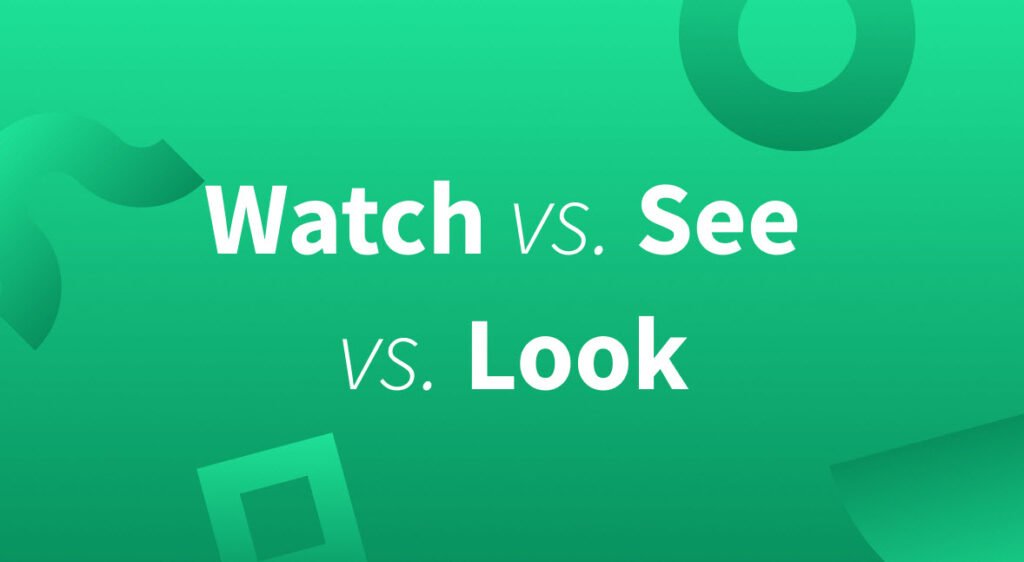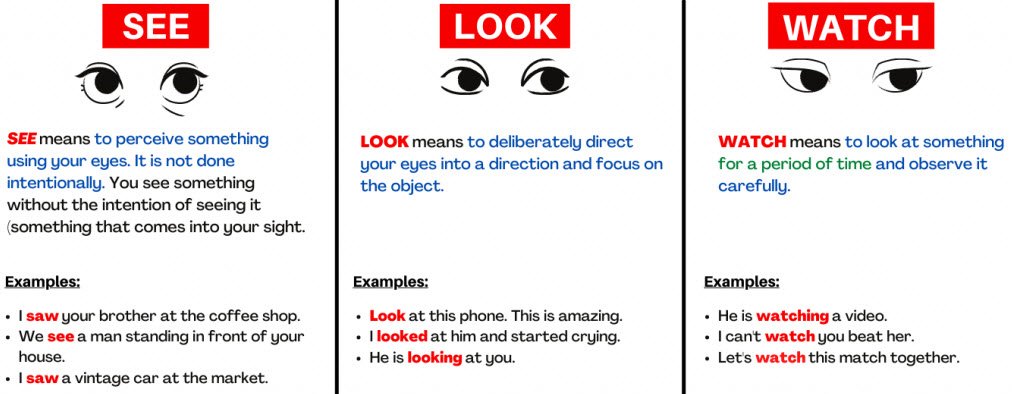
Hey everyone! Have you ever found yourself grappling with the appropriate usage of “see,” “look,” or “watch”? Let’s explore into these words and unravel the differences to use them effectively in our daily conversations:
See:
“We see” when our eyes involuntarily perceive something in our field of vision. It’s a passive act, occurring without intentional effort. For instance, you “see” a rainbow after the rain or “see” your friend at a party.
In these instances, you’re not actively seeking to view something; it simply enters your visual perception.
Look:
“Looking” involves an intentional and directed action. When you “look,” you purposefully guide your gaze towards a particular subject or object. It’s an act driven by intention, focusing your vision on something specific.
For example, you “look” at a beautiful sunset or “look” for your keys when they’re misplaced. In both scenarios, you are deliberately directing your sight to something with a specific purpose.
Watch:
“Watching” implies a sustained, continuous act of paying attention to something. It involves devoting your focus and maintaining vigilance over a period of time. You “watch” a movie, “watch” a soccer game, or “watch” your favorite TV show.
Unlike a mere glance or a momentary focus, watching entails consistent and prolonged attention.

In summary, the key distinction lies in the level of intention and the duration of attention associated with these words. “Seeing” is passive and involuntary, “looking” is intentional and directed, and “watching” involves sustained and continuous attention.
Understanding these nuances can significantly enhance your communication skills, allowing you to convey your thoughts and observations with clarity and precision. So, the next time you’re using these words, keep in mind their unique meanings and employ them appropriately based on the context. Happy communicating!








